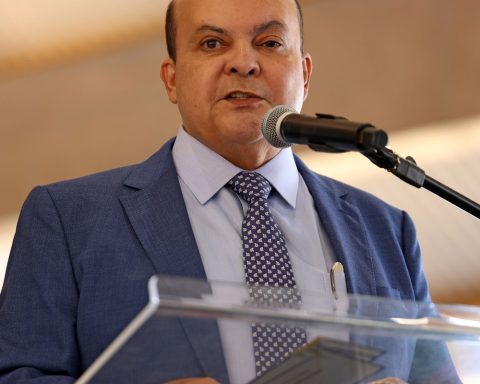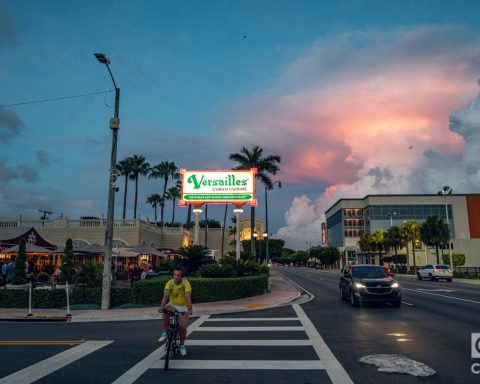Douglas Castro Bonilla, a 42-year-old Nicaraguan, worked as an audiovisual producer until the political and social crisis broke out in the country due to the protests against the government of Daniel Ortega in 2018, and he lost his job.
Together with his wife, Xiomara Abaunza, he began to sell “cooked beans” and, although things were going well for them at first, the prices of the beans rose due to the crisis, and they had to leave the business.
So they created “Nicole Desserts”. His wife had the initiative to sell the desserts online, they took them home and then they decided to open a physical store. “We started with a table that my grandmother lent me, a chair from a neighbor, and a blender,” Castro Bonilla said.
Then the pandemic came and they had to temporarily close as a precaution. After a while, they opened with many difficulties and now they assure that “with the help of God” and with effort, they have a lot of acceptance.
However, what they earn is not enough to buy basic household products, and on many occasions Castro has thought about emigrating. He is only stopped by the idea of getting away from his family.
“Many times we say that we are going to close and I am going to leave. One always caresses that idea, that I am going to go somewhere else,” said Castro Bonilla.
In the last four years, it is estimated that more than 200,000 Nicaraguans have emigrated as a result of the socio-political crisis that the country is going through, According to figures from the UN Refugee Agency (UNHCR).). Although many Nicaraguans have left the country fleeing government repression against opponents, others have emigrated or are considering emigrating for economic reasons, a difficult decision for families, who have to separate.
So far this year, at least 137,926 Nicaraguans have entered Costa Rica, according to Costa Rican authorities.
Similar to that of Castro Bonilla is the case of Alexander Herrera, a 36-year-old Nicaraguan and father of a family. Until the outbreak of the protests, he worked at the SINSA company as a “tire fitter,” but then wages dropped and food prices rose a lot “and by that time my little daughter was being born,” he said.
He planned to go to Costa Rica then, but he got an opportunity to work in a company subcontracted by DISNORTE-DISSUR, the Nicaraguan electricity company. But in the face of the sanctions imposed by the United States, the European Union, and other countries on officials and institutions of the Ortega government for human rights violations, “in May 2021 production dropped” and he began to earn “3,000 córdobas a month ( about $85.71), working from dawn to dusk,” he said.
Herrera assures that he had no choice but to leave the country because his salary was no longer enough for his family’s needs and he made the sad decision to leave his three children and wife to go earn money he needed to cover household expenses. , pay off debts and save for her oldest daughter’s 15th birthday celebration.
“With great pain I began the journey” to the United States, he said.
Lawyer Astrid Carolina Montealegre, supervisor of the Nicaraguan American Human Rights Alliance (NAHRA), highlights that in the US since 2019 there have been 146,648 deportations of Nicaraguans, while only 8,671 remained in the US.
“Most of the requests [de asilo] are denied,” he said.
VOA journalist Houston Castillo contributed to this report
Connect with the Voice of America! Subscribe to our channel Youtube and turn on notifications, or follow us on social media: Facebook, Twitter and Instagram.

















